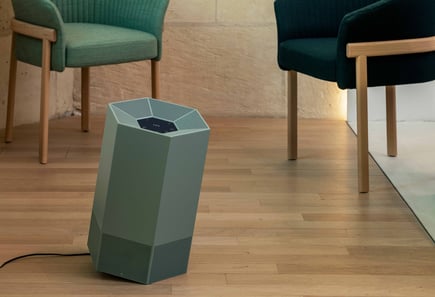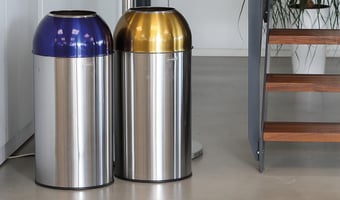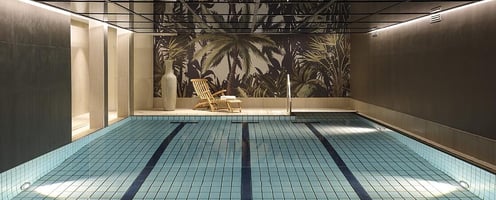The impact of allergies at work

One in three people in France suffered from respiratory allergies in 2023 according to the World Health Organization, and it will soon be one in two by 2050. In light of this, it appears important for business managers to measure the impact of this phenomenon on their employees and their activity.
Despite the current trend towards well-being and quality of life at work, allergy sufferers lack recognition and solutions to address their need for good indoor air quality (IAQ). Today, nearly one in two French people do not consider allergies as a real disease, which is even more evident in the workplace.
Yet, according to the Asthma and Allergies Association, allergy sufferers surveyed reported that:
-
Allergies deteriorate their quality of life (27%)
-
Allergies require them to be vigilant daily about what to do or not do (20%)
-
Allergies worsen their health condition (17%)
-
Allergies cause additional stress (11%)
-
Allergies cause additional fatigue (9%)
What is respiratory allergy and what are its symptoms?

Respiratory allergy is an exaggerated immune response of the respiratory system to allergens such as dust, pollen, mold, or mites.
The most common symptoms of respiratory allergy are:
Conjunctivitis: manifested by inflammation of the conjunctiva, the membrane that covers the white part of the eye.
Rhinitis: characterized by inflammation of the nasal mucosa, which causes nasal congestion, nasal discharge, and itching.
Sinusitis: manifested by inflammation of the sinuses.
Sneezing: an early symptom of respiratory allergy.
Asthma: manifested by breathing difficulties, coughing, and wheezing.
Eczema: a symptom of respiratory allergy, especially in children.
The impact of respiratory allergies on a company
Given these symptoms, we can affirm that employees' respiratory allergies can have a significant impact on a company.
Indeed, respiratory allergies often lead to a decrease in productivity since allergic reactions affect employees' concentration and ability to work effectively. Employees with allergies are also absent more often due to their crises, which can lead to a decrease in the overall productivity of the company.
Harvard School of Public Health estimated the average cost of absenteeism due to poor indoor air quality for a company at €450 per year per employee.
Where are employees most vulnerable to allergens?
 Employees' working conditions have a strong impact on their exposure to allergens and therefore their risk of allergic crises. Firstly, we can distinguish between a rural and urban workplace.
Employees' working conditions have a strong impact on their exposure to allergens and therefore their risk of allergic crises. Firstly, we can distinguish between a rural and urban workplace.
The threats to air quality in urban areas are usually pollutants generated by human activity (PM 2.5, PM 10, VOC...), mainly from road traffic.
In the countryside, the main threats to air quality are in most cases allergens released by richer vegetation (grass pollen, ragweed, birch...).
Workspaces should also be taken into account. As we have seen previously, there are many allergenic substances, and it is important not to neglect certain ones. A carpeted floor or dusty environment, for example, will be a source of mites, and the frequency of opening windows, as well as the maintenance of a ventilation system, will have an impact on the presence of pollen and other pollutants in a company's indoor air.
Poor indoor air quality means more frequent allergies
Not only can outdoor allergens find their way into indoor air, but other air pollutants such as PM 2.5, PM 10, and other chemicals can also enter. These pollutants can exacerbate the effects of allergens and create an unpleasant environment for allergic individuals in the workplace.
We encourage you to discuss these issues with your allergic employees to better understand their daily struggles. This will allow you to implement appropriate solutions to alleviate their symptoms. Investing in professional air purifiers for your private offices and open plan can provide allergic employees with a shield of clean air, creating a peaceful environment that will boost morale and productivity.
At JVD, we can help you find effective air purification solutions tailored to your specific needs, as well as provide educational tools to showcase your commitment to employee health and well-being.
Our team is dedicated to helping you create a comprehensive air purification ecosystem that can significantly increase the productivity of your employees, especially those with allergies.





Laissez un commentaire